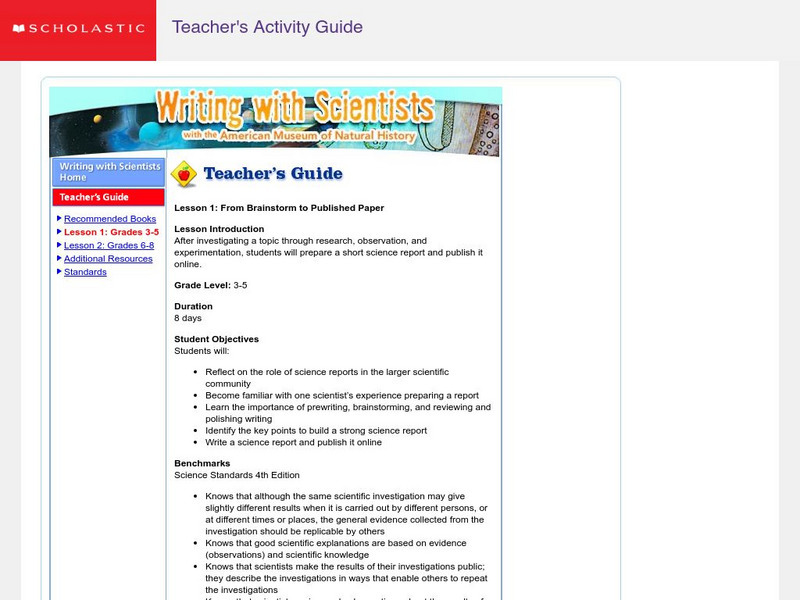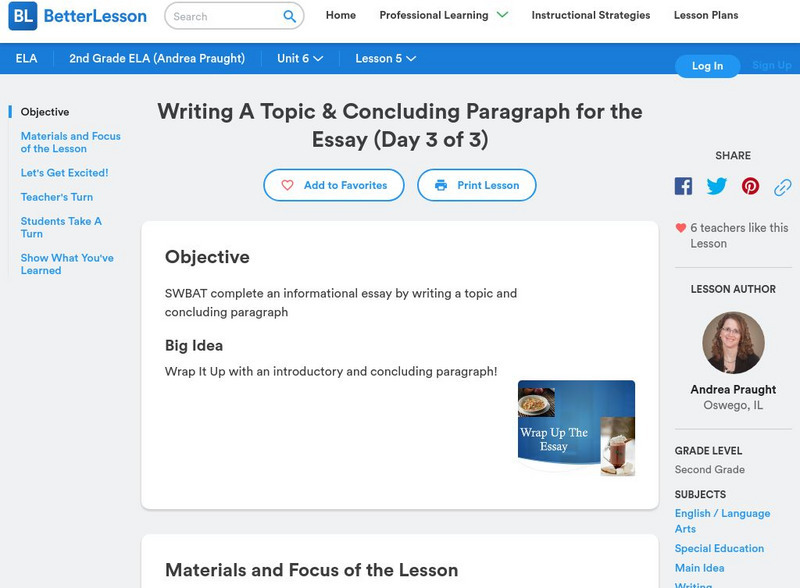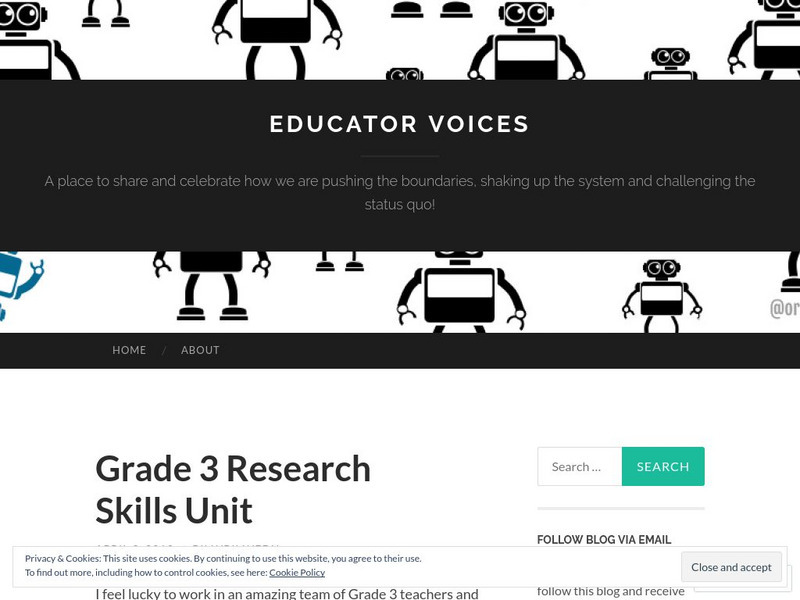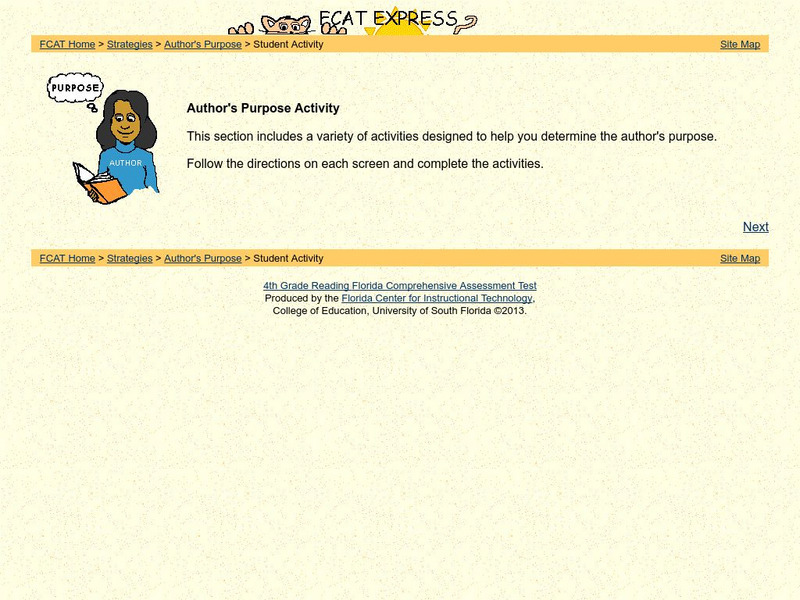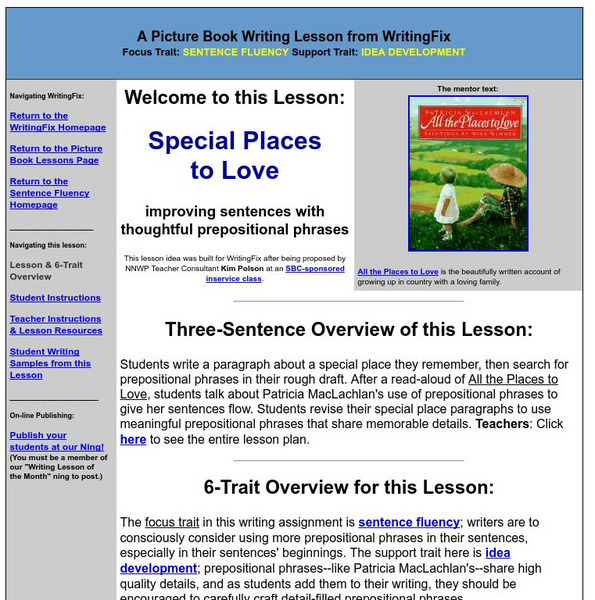Core Knowledge Foundation
Astronomy—Our Solar System and Beyond Tell It Again!™ Read-Aloud Anthology
A read-aloud anthology explores our solar system and beyond. Informational texts about astronomy invite pupils to discuss readings. Extension activities examine vocabulary, sayings, and phrases. Scholars work through the writing process...
Core Knowledge Foundation
The Human Body—Systems and Senses Tell It Again!™ Read-Aloud Anthology
Nine lessons over three weeks explore the human body through read-alouds. Third graders listen to and discuss a reading followed by extension activities, including word work and comprehension practice. Learners draft a narrative essay.
Core Knowledge Foundation
Third Grade Skills Unit 3: How Does Your Body Work?
A skills unit combines ELA and science with lessons that explore the human body. Lessons begin with a reading, go into skills practice, and offer take-home materials. Skills practice includes listening to and discussing a read-aloud,...
New York City Department of Education
Grade 3 Literacy in Science: Animal Adaptations
Third graders research and study animal adaptations and then use their findings to write narratives that include scientific criterion. This lesson is all about literacy and science! The lesson is completely designed for addressing Common...
Fluence Learning
Writing a Narrative: How Bear Lost His Tail
After reading the first, second, and third parts of "How Bear Lost His Tail", third grade writers answer questions about the story by completing a series of options, including discussion points. Then, they begin to plan a new narrative...
Harper Collins
The Giving Tree Anniversary Teaching Guide
Celebrate poetry month all of April with a guide that uses six of Shel Silverstein's most famous books as a basis for the lessons. Discussion questions and writing activities are provided for each of Silverstein's books.
Fallbrook Unition Elementary School District
Narrative Writing
Enhance narrative writing instruction with engaging and interactive planning pages. Eight lessons take authors through the process of writing a narrative story, two lessons prompt writers to create a personal narrative, and a...
John F. Kennedy Center
Writing a Myth
Tap into the imaginative minds of young learners with a creative writing activity. After reading the myth Giants and Mosquitoes, this student guide supports young writers as they brainstorm and develop their very own creation myths....
Curated OER
Write a Round-Robin Story
Learners discover the elements of a story (introduction, plot, climax, resolution, denouement). In groups of five, one student writes an introduction and passes it to the next person, who writes the plot and passes it to the next person,...
Curated OER
Julian Secret Agent: Commas
Your class participates in a variety of shared reading and writing activities related to the book Julian Secret Agent. They complete a class story chart, examine how to use punctuation for dialogue, write an alternative...
Curated OER
An Unfinished Tale...
Challenge your writers to compose a proper ending for the short story "The Talisman." Class members start out by either listening to or reading the first nine paragraphs of the story. The rest is up to them! Encourage kids to resolve the...
Alabama Learning Exchange
Writing Thank-You Notes
Students write thank-you notes using the writing process. They draft, revise, edit, and publish their thank-you notes and use a computer to view examples of thank-you notes and insert graphics into their own published thank-you notes.
Alabama Learning Exchange
Look at me!
Third graders write an autobiography and use pictures of themselves from past and present to illustrate it. They take pictures with a digital camera, scan pictures, and add them to a document.
Polk Brothers Foundation Center for Urban Education at DePaul University
De Paul University: Center for Urban Education: Constructed Response Organizer [Pdf]
This graphic organizer contains questions for students as they analyze a constructed response question. Students will read the question closely and use this planning tool to plan constructed responses. This graphic organizer is a...
University of South Florida
Fcat Express: Story Mapping
Site provides extensive assistance in preparing 4th grade students for Florida Comprehensive Assessment Test. This section focuses on story mapping, which helps students put events of a story in sequential order.
Scholastic
Scholastic: Writing With Scientists
After students investigate a topic through research, hypothesizing, observing, and experimentating, teachers can use this lesson to help their students prepare short science reports and publish them online. The Writing with Scientists...
TeachEngineering
Teach Engineering: Pingus Penguins: Writing Good Instructions
Students use the free computer game Pingus to learn how engineers, specifically environmental engineers, use their technical writing skills to give instructions and follow the instructions of others. Students learn to write instructions...
Utah Education Network
Uen: Third Grade Writing Lesson #1/ Descriptive Prompt
Given a descriptive writing prompt, 3rd graders will include precise word choices and sensory language in a piece of writing about their favorite place.
Read Works
Read Works: 3rd Grade: Lesson: Identifying Descriptive Language
[Free Registration/Login Required] With this lesson plan, 3rd graders can learn to identify descriptive language. Focused on the book "Mr. George Baker."
Better Lesson
Better Lesson: Writing a Topic & Concluding Paragraph for the Essay
This lesson is a final step towards supporting students to practice writing an informative/explanatory paragraph conveying complex ideas and presenting information clearly and accurately. Second-grade students can usually write a...
Other
Educator Voices: Grade 3 Research Skills Unit
Describes the process teachers went through to create a lesson unit where students first brainstormed what it means to do research, then were tasked with choosing a topic, researching it, and presenting on it several days later. The...
Capital Community College Foundation
Guide to Grammar and Writing: Fragments and Types of Sentences
Ten questions asking students to identify the difference between complete sentences and sentence fragments.
University of South Florida
University of South Florida: Fcat Express: Author's Purpose Activity
Practice identifying author's purpose by recognizing the purpose in titles, understanding the difference between fact and opinion, and identifying the purpose of various forms of writing.
Writing Fix
Writing Fix: Special Places to Love: Thoughtful Prepositional Phrases
In this lesson learners learn to write meaningful prepositional phrases in order to evoke thoughtful word choice.





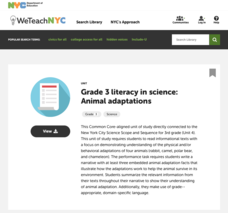




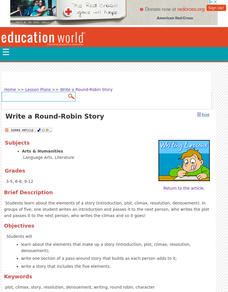




![De Paul University: Center for Urban Education: Constructed Response Organizer [Pdf] Graphic De Paul University: Center for Urban Education: Constructed Response Organizer [Pdf] Graphic](https://d15y2dacu3jp90.cloudfront.net/images/attachment_defaults/resource/large/FPO-knovation.png)

